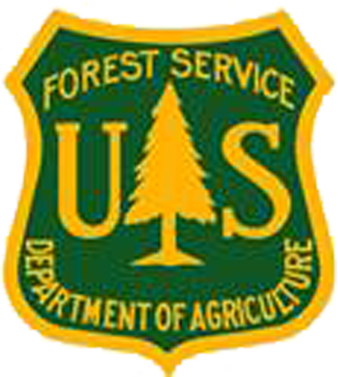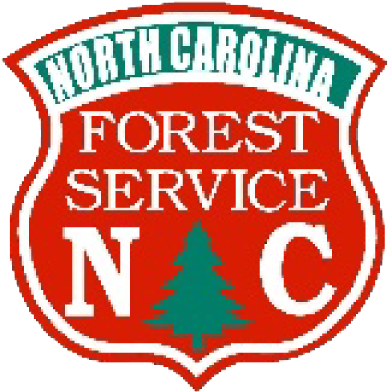



Speakers
Mike Aust received his Ph.D. from NCSU and has been a faculty member in the Department of Forest Resources and Environmental Conservation at Virginia Tech since 1989. Mike's teaching activities at Virginia Tech include Forested Wetlands, Forest Soils and Hydrology, Forest Boundaries, and Roads, and Forest Field Experiences. His research activities focus on the development and implementation of forestry BMPs to minimize the effects of forest operations on soil productivity and water quality. Mike is a Certified Forester and member of the Society if American Foresters, Society of Wetland Scientists, and Soil Science Society of America.
Don Bright - awaiting biography
Mark Brown is a Resource Analyst with the Southern Research Station of the US Forest Service at the Forest Inventory and Analysis (FIA) work unit in Knoxville, Tennessee. Mark is responsible for the FIA publications regarding forest trends in the States of North Carolina and Florida. Regionally, he is responsible for reporting trends in the South's cypress population as well as that for the South's mangrove population. Mark received undergraduate and graduate degrees from the University of Georgia and Clemson University, respectively.
John Colberg works with Rockdale County, Georgia as a Forester and Certified Arborist. John performs inspections related to the County's Tree Ordinance and other urban forestry services. During his 30 years with Georgia Forestry Commission, he served as a Field Forester, District Water Quality Coordinator, Regional Forest Water Quality Specialist, and the final 4-1/2 years as the GFC's agency coordinator of its Forestry Water Quality/BMP Program, retiring in 2015. The County also owns approximately 2,000 acres which he manages as county greenspace, where cutting and other normal forestry operations are carried out. John earned his BS in Forest Management at Auburn in 1985 and currently resides in Buford, GA.
William Conner - awaiting biography
Fred Cubbage is Professor, Department of Forestry and Environmental Resources, North Carolina State University. He has co-authored more than 400 research papers and 500 speeches on analysis of global timber investments, natural resource policy, market based conservation programs and sustainability certification, and agroforestry; and teaches natural resource policy and forest economics. He was a Service Forester in Kentucky for 2 years; a professor at University of Georgia for 10 years; an economist and Research Work Unit Project Leader with the Forest Service for 5 years; Department Head at NC State for 10 years; and for the past 13 years, a professor at NC State. He received undergraduate and graduate degrees at Iowa State University and the University of Minnesota, respectively. Fred is the 2017 national President of the Society of American Foresters.
Tim Foley is the Policy Director for the Southern Group of State Foresters (SGSF), representing the forestry policy interests of 13 states from across the South as well as Puerto Rico and the US Virgin Islands. In this role, he supports the mission of state forestry agencies in sustaining the economic, environmental and social benefits of the South's forests by working with Congress, federal agencies, and partners to generate policy that supports southern forests and forest landowners. Prior to joining SGSF, Tim worked for the US Forest Service in many roles including timber management, environmental planning, budget development, and with the USFS International Programs area providing technical assistance on forest carbon assessment to countries in West Africa. Tim holds a Masters of Environmental Management from Duke University and an undergraduate degree in Environmental Policy from Colby College in Waterville, ME.
Emile Gardiner is a Research Forester with the Southern Research Station of the US Forest Service at the Center for Bottomland Hardwoods Research in Stoneville, Mississippi. Emile serves as the Team Leader for Regeneration and Reproductive Biology Research. His academic training and research experience have focused on seedling ecophysiology and regeneration silviculture of bottomland hardwoods. His research contributes to the development of practices that benefit rehabilitation of natural hardwood stands and restoration of forest on former agricultural land for a variety of landowner objectives.
Tom Gerow, Jr. is the Water Resources Staff Forester with the North Carolina Forest Service in the state office in Raleigh. Tom joined the Forest Service in 2002 and through his time with the agency has been a staff specialist on all matters related to water quality & forestry, including nonpoint source pollution; BMPs; stream restoration; training & education; and in his current job is the agency's lead staff person on water-quality & wetlands rules, policies, and guidance. Tom has served as Chairman and Secretary of the Water Resources Committee for the Southern Group of State Foresters. Prior to his state service, Tom worked 7 years for the Georgia-Pacific Corporation across 3 states while assisting with management of the company's timberland and overseeing timber harvesting operations. Tom attained a BS in Forest Management from N.C. State University in 1994, is a North Carolina Registered Forester, a member of the Society of American Foresters, and the North Carolina Forestry Association.
Ben Larson has worked on sustainable biomass for over ten years. Beginning with the Union of Concerned Scientists (UCS), he advocated for US federal renewable energy and climate policy that included sustainable biomass, and developed compromise with forest owners, biomass power generators, and the environmental community over how sustainable forest biomass could be included in policy. After receiving his master's in Forestry from the Yale School of Forestry, Ben worked as a consultant with Environmental Defense Fund (EDF) on practical ways that the pellet industry can be more sustainable. At the National Wildlife Federation (NWF), Ben managed bioenergy and SE Forestry programs, which focused on habitat and biodiversity conservation, and partnered with Enviva on two projects related to identifying and protecting high conservation-value forests. At Enviva, Ben is director of sustainability, managing partnerships related to biomass sustainability and climate benefits.
Robert "Bob" Kellison - awaiting biography
Amanda Mahaffey is the Northeast Region Director of the Forest Stewards Guild. She holds a B.A. and Master of Forestry from Yale University and a Master of Music from the University of Southern Maine. She has over a decade's worth of experience in forestry and environmental management, including industrial forest management, wetland delineation, timberland transactions, woodland owner outreach, regional conservation partnership coordination, and fire. In 2016, Ms. Mahaffey co-authored a report on ecological forestry for bottomland hardwood forests of the Southeast, and she continues to be engaged in regional initiatives in bottomland forest conservation and management.
Hardy Parker is a resident and private landowner in Duplin County where he has managed his family's farms and timberland for more than 30 years. His management of timberland includes a "hands-on" approach for all aspects from planting through harvesting. Hardy was a member of the North Carolina Forestry Advisory Council from 2006 - 2012. He is currently a member of the North Carolina Department of Agriculture Commissioner's Circle (2012 - present).
Curtis Smalling is the Director of Conservation with Audubon of North Carolina. He is currently responsible for the Working Lands, Coast, and Bird Friendly Communities programs for Audubon North Carolina. He is a member of several species working groups including the Cerulean Warbler Technical Working Group, International Wood Thrush Conservation Alliance, and the International Golden-winged Warbler working group including working on these species and others on their wintering grounds in Nicaragua. He is a contributing author or editor for several books and publications. Curtis is a 1985 magna cum laude graduate of Appalachian State University with a Bachelor of Arts in Biology and in 1996 received a Master of Arts in Appalachian Studies A life-long bird watcher, Curtis began watching birds with his grandfather, who was very interested in Purple Martins. He resides in Boone, NC with his wife of 35 years, Mary, and has three children and a granddaughter.
David W. Stahle is a Distinguished Professor in the Department of Geosciences and Director of the Tree-Ring Laboratory at the University of Arkansas, Fayetteville (www.uark.edu/dendro). He received his Ph.D. in Physical Geography at Arizona State University in 1990. He was elected as a Fellow of the American Association for the Advancement of Science in 2015. He has published over 100 articles on the development of climate-sensitive tree-ring chronologies from the United States and Latin America, the reconstruction and analysis of past climate, and on the social and environmental impacts of past climatic extremes. He is the founder and director of the Ancient Cross Timbers Consortium and is now developing the Ancient Bald Cypress Consortium to promote research, education, and conservation of the last remaining old-growth bald cypress and bottomland hardwood forests that survive in the southeastern United States.
Jeff Vowell is Assistant Director with the Florida Forest Service. Jeff has direct oversight for the Forest Management Bureau, which manages 1.2 million acres of timber land for wood supply, recreation and wildlife, and provides technical forestry assistance to private landowners; the Forest Protection Bureau which is responsible for fire control on over 26 million acres of wildland; the Logistics and Support Bureau which is responsible for all facilities and equipment in the agency; and the Field Operations Bureau which is responsible for implementation of all program areas. He also has oversight responsibilities for the agency's Forest Hydrology program, which manages the silviculture BMPs, and related regulatory aspects of forestry in Florida. The Florida BMP Technical Advisory Committee recently developed the Forestry Wildlife BMPs for Imperiled Species. Jeff Vowell earned a B.S. degree in Forest Management and a Masters degree in Hydrology. He has worked as a procurement forester for private industry and has been with the Florida Forest Service since 1987.





